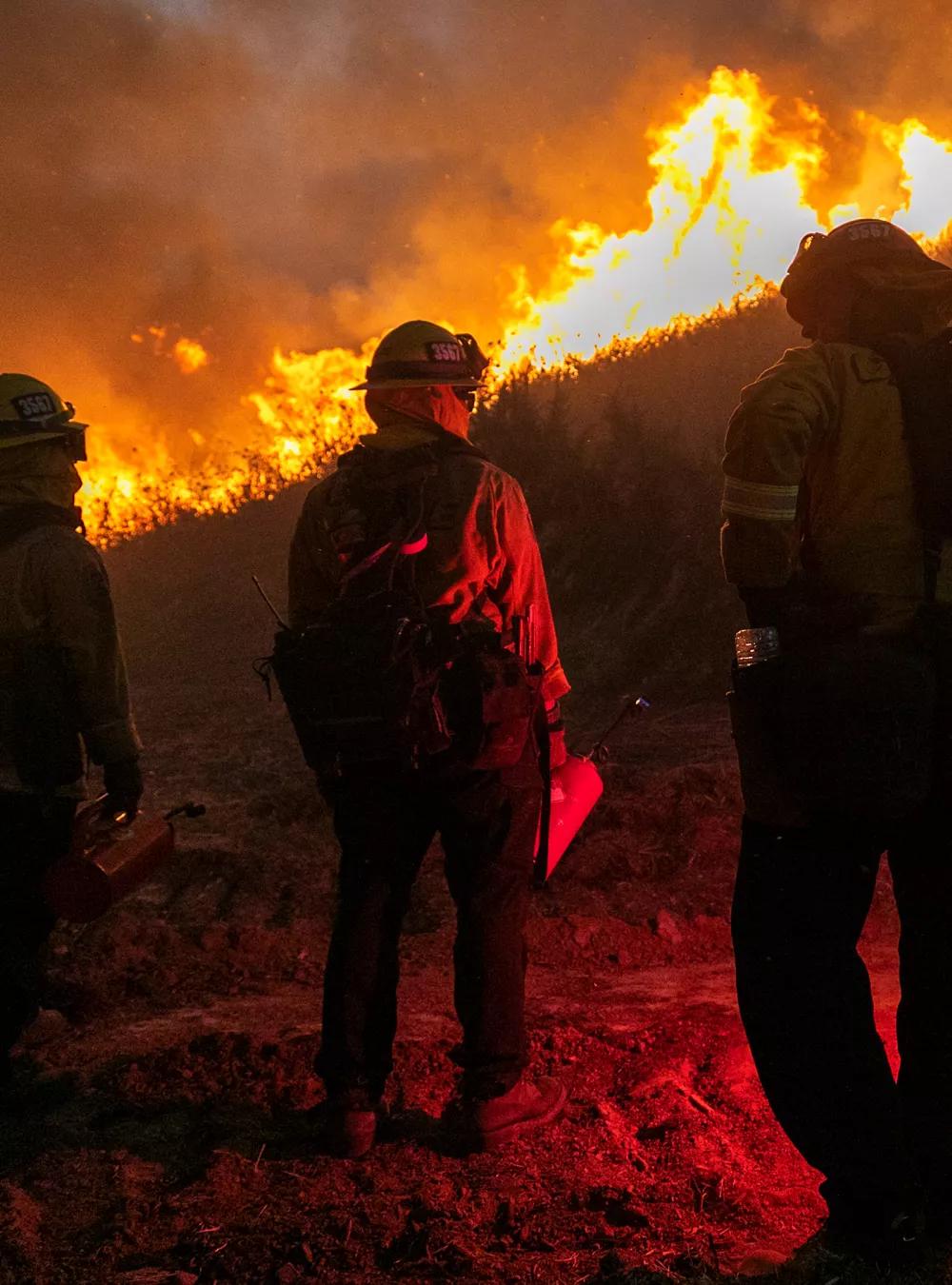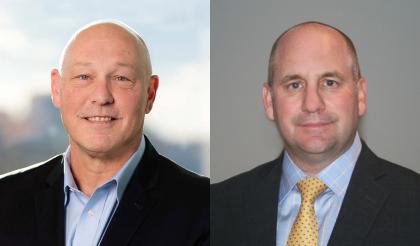In this Q&A, two of MITRE’s leaders discuss how MITRE’s system-of-systems approach and technical solutions strategy can help sponsors adapt to our changing climate.

MITRE Confronts the Climate Change Challenge with a Whole-of-Nation Approach
On Earth Day and every day, MITRE and our sponsors are stepping up to address the resilience, planning, and mitigation challenges of our changing world. We sat down with Chris Fall, MITRE vice president of Applied Science, and Carl Picconatto, the director of the Emerging Tech Innovation Center to discuss MITRE's climate and environmental work. (Above, MITRE researchers have been working with the US Coast Guard and other government agencies to deal with conditions in the rapidly changing Arctic ecosystem.)
MITRE is known for cyber, national security, and health. What makes climate change a MITRE issue?
Chris Fall: MITRE responds to the needs of our sponsors, and the government agencies we work for are looking for our help in mitigating the risks they see in a changing planet. The idea of environmental resilience also intersects with a lot of areas we work in, including defense, national security, advanced energy, transportation, health, and others. That means climate change is a problem MITRE can contribute to solving.
In 2021, MITRE’s Horizon Strategy promised a focus on climate and energy issues. How is MITRE putting those ideals into practice?
Carl Picconatto: MITRE Labs’ Horizon Strategy focuses on addressing energy, environment, and climate issues in key areas where MITRE already has significant expertise including sensors, indicators and warnings, resilience, and mitigation. Over the past year, with our program division partners, we have significantly enhanced our work in these areas. We've also increased our investments in our internal, independent research and development for climate issues.
We’ve adopted a “Sense, Decide, Act” mindset to identify the best immediate opportunities while we continue to build capability, especially in terms of personnel. For example, in addition to MITRE staff’s existing expertise, in the past year we hired new staff, including five climate-focused Ph.D.s, and will be adding a new chief scientist for climate and environment and a chief engineer for advanced energy. We expect this hiring growth to continue.

MITRE's Chris Fall and Carl Picconatto.
MITRE prides itself on being objective, non-partisan, and unbiased. What does that mean when climate change itself is seen as partisan and political?
Picconatto: While there are a number of political aspects to environmental and climate challenges, when it comes to technical solutions to specific issues, political questions and differences frequently disappear.
For example, Department of Defense concerns about making naval bases more resilient to present and future flooding is not a political question. It’s a technical one—and one we can have an impact on. Likewise, bringing MITRE expertise to bear on building and networking sensor systems to measure CO2 uptake in the oceans is a fundamental research question all sides want answered.
As Chris notes, there a plenty of technical questions with technical solutions that are in MITRE’s wheelhouse. We can do a lot of impactful work amid the ongoing political conversation.
This isn’t just a whole-of-nation challenge, but a whole-of-planet challenge; how can you tackle something this big in a company like MITRE?
Fall: We’re going to focus on what our government customers are asking us to do, which is to provide them with the tools and analysis that will enable resilience in the face of a changing planet. But it’s important to understand that many of the solutions we develop for our sponsors are capabilities that we can share more broadly, including around the world. And one of the things that MITRE does best is to bring together government, academia, and industry to collaborate on solving problems. That’s a little different than MITRE solving climate change for the world, but you can bet that we will make a difference.
Picconatto: We also don't just drive this work from the top down. We try to marry the passion and interest of individual staff at MITRE with the growing needs of our sponsors. When we’ve had the best outcomes, that's what's happened. Thankfully, we have a lot of passionate, talented people who want to be involved and sponsors who want their help.
MITRE often focuses on offering unique capabilities to problems. What can MITRE bring to the climate space that’s not already there?
Picconatto: In some ways, we're a late entrant to climate work, but there are several aspects that aren't well-covered where MITRE has expertise. And few companies have the breadth and reach we have. We can convene health, modeling, remote sensing, networking, and big data expertise in ways others just can’t. This creates the ability to design unique and creative solutions and share them across the community.
Fall: Our most important superpower is systems thinking, systems engineering. In my experience, there are a whole lot of relatively local-scale solutions being developed for advanced energy, for carbon and waste reduction, and in other areas that might have relevance to the climate problem.
Knitting all of this together through systems analysis and engineering and providing an understanding about the potential for large-scale techno-economic success is a place where MITRE has unique skills and abilities.
Where does MITRE want to be in the climate debate? How do you see MITRE's role moving forward?
Picconatto: As Chris says, we’re looking to make important contributions in our areas of expertise. We plan to increase our involvement and play a critical role, but in football terms, we're not trying to be the quarterback or the star receiver. We’re the offensive and defensive lines, and there is a lot of blocking and tackling that needs to be done. Weekend fans might not wear our jersey, but those that follow closely will understand the work that we do and its importance. And that's where I think we belong.
Fall: MITRE does not want to be in the climate debate. Our job is to provide the best possible advice to our sponsors and to provide solutions to the problems that they identify as important. To do this job effectively with climate change topics, we have to steer clear of the highly politicized climate debate.
Our focus should be on the impartial analysis of data and other factors that can inform our sponsors’ policy choices. We also need to create the technology solutions that will allow our sponsors to continue to do their jobs for the nation in the face of a changing environment.
And to the extent that our sponsors encourage us to share what we are doing for them in climate and energy and the environment with the wider nation and the rest of the world, we are happy to do that in a way that preserves our ability to remain advisers to our sponsors and not advocates for particular policy directions.